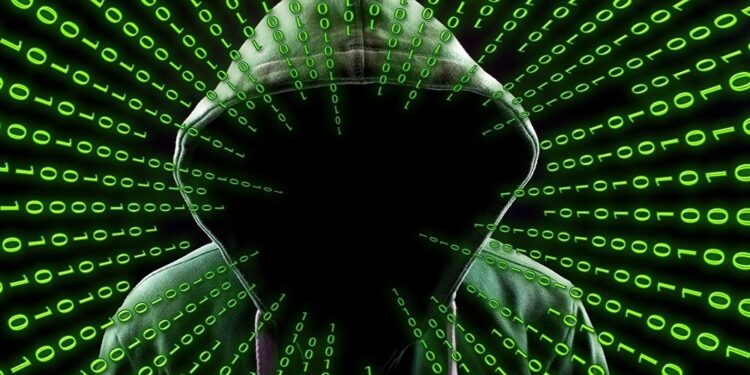Putting your money in a bank is no guarantee it will be safe from fraud. Banks are not police agencies and it’s not their duty to prevent transactions on your account – even suspicious ones. Banks can only impose limited security measures to protect your account(s). As a consumer you have the obligation monitor your own accounts and carefully limit their use.
With hackers, scammers and fraudsters developing new ways of accessing bank accounts, it’s very important to take precautionary measures to protect your account(s). Illegal access to bank accounts is one of the fastest-growing fiscal crimes today. You can’t avoid to take any chances when it comes to your money. Phishing, scamming and stolen identity problems are real, and if you don’t take care, your hard-earned money will go to flames.
Here are some of the ways to safeguard your bank account from hackers, fraudsters and scammers.
1. Avoid sharing your bank details
Your card number, account number, PIN or CSC code in the wrong hands can be used to access your account. Delete the messages containing such details that your bank might send to your phone.
2. Use strong passwords
One of the security measures you need to impose on your account, is a very strong password that no one can’t guess. Avoid obvious password like your name or name of a place, or PINs with your birth year. Use a mixture of letters (uppercases and lowercases), numbers and symbols that people wouldn’t necessarily think of.
3. Avoid paper trail
Paper receipts/statements can be exploited by hackers to extract details that can aid them penetrating into your bank account.
4. Cover your password/PIN
When accessing your account, more so in public or at the ATM cover your details, you never know who might be watching.
5. Change your password/PIN regularly
Make sure you change your password/PIN more regularly or when you suspect that it has fallen into the wrong hands.
6. Set up security questions
Use security questions, with answers that you only know of, when prompting you to change the password or to access the account.
7. Check accounts regularly
Check your account statements keenly and more often to detect any purchases, transfers or withdrawals you didn’t make. Always monitor your bank account activities for any red flags.
8. Get bank alerts
Set up bank alerts, to monitor and notify you when an activity happens in your account. For instance, to get a notification when a withdrawal or transfer is made from your account.
9. Monitor your credit scores
Scammers may get hold of your personal information, that they can use to open new accounts for fraudulent purposes. Check your credit scores regularly for unexpected changes in your scores that could signal fraud.
10. Only buy from secure sites
When making online purchases, only do that on sites that are secure and have implemented security measures to protect your details.
11. Never save your debit card number on a website
Avoid saving your card details on a website, because it’s very easy for them to initiate a transaction without your approval.
12. Avoid making purchases online/logging into your bank account over open WiFi networks
Hackers can intercept your data, like account login credentials and bank account number. Your information also can easily be accessed by another device over a WiFi network. Be careful which WiFi you connect to and try as much as possible to avoid free WiFi networks. It’s not new that hackers do create rogue networks with names of nearby businesses. Even if the network is legit, there’s no guarantee that its secure.
13. Never give your bank details to unsolicited requests
Avoid dishing out your bank details to calls masquerading as bank representatives. Make sure you are indeed talking to a genuine person before disclosing any details, but above all, never give your password/PIN number to anybody.
14. Check gas pumps and ATM’s for skimming devices
Before inserting your card into ATM’s and gas pumps first check if they have been tampered with.
15. Don’t access your account from a shared computer
Avoid using shared computers, like in cybercafé, to make online purchases or transactions, or even accessing your online bank.
16. Don’t click on phishing emails
Avoid clicking on phishing emails, those links can be used to gather your bank details from your computer or phone.
17. Put monthly deposits into restricted accounts
Put your money into restricted accounts, like fixed deposit or savings accounts, that will protect your accounts from immature withdrawals.
18. Establish daily maximum limits
Establish limits with the bank about how much money can be withdrawn in a single day from your bank account, and also how many transactions that can be done over your account in a day. The bank will make sure that the account is frozen once the limit is reached. Any more withdrawals will require you to contact your bank.
19. Swipe within eyesight
When your card is being swiped at a shop or restaurant, demand that it should be done on a terminal you can easily see. You should always ask for a receipt, even when a transaction has been cancelled or failed to go through.
20. Beware of smishing
Smishing occurs when you get a dubious text message from a fraudster posing as a bank representative. Avoid these messages at all cost, as they may be after getting your account number and PIN by lying to you about promotions or security breaches on your account.
21. Fend off malware
Ensure your device has a working anti-virus. Avoid installing malware softwares; by downloading softwares that you trust, avoid clicking fishy links online or spamming emails. Hackers can easily track your activities on your device, including banking activities.
22. Know what apps you’re downloading
When downloading apps to your phone, make sure they are legit and approved. Some apps will claim to do something, but in essence they do something entirely different; like monitoring your activities, spying on you or gathering information from your device.



































































































































































































Victor I wonder how banks still use sms to send codes when you attempt login. Using a decentralized 2FA like Blockchain is much safer.
What is inside my a/c that i am safe guarding ???
Ya nini na haina kitu. I will revisit the post nikiwa na heavy account.